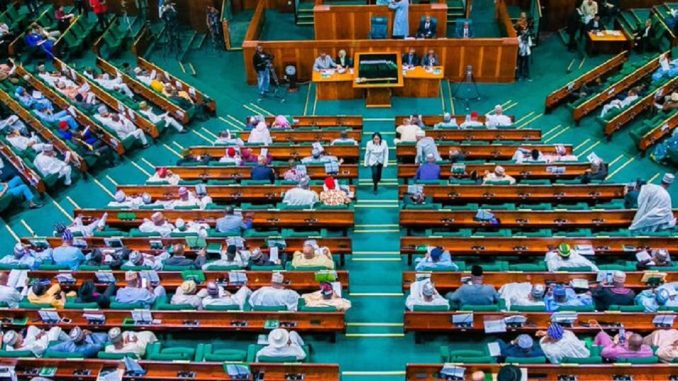
The House of Representatives has clarified that none of the 30 proposals for new states met the constitutional requirements, stressing that it has not taken a position on the issue.
The lower chamber also clarified that media reports that it is proposing the creation of 31 new states were inaccurate and misrepresents the legislative process.
The House said that it is ultimately in the place of the Nigerian people to push their proposals through and take an informed decision on the contemporary issue of state creation.
Speaking during an interview on Friday morning in Abuja, Kalu, who is also the Chairman, House Committee on Constitution Review, said the 30 proposals for state creation read during Thursday’s plenary session of the House was to inform Nigerians about the number of applications so far received.
Kalu had in a letter he read during the plenary said the House received proposals for an additional six new states in the North Central, four in the North East, five in the North West, five in the South-South, and seven in the South West.
The states being considered include Okun State, Okura State, and Confluence State from Kogi; Benue Ala and Apa States from Benue; FCT State; Amana State from Adamawa; Katagum from Bauchi State; Savannah State from Borno; and Muri State from Taraba State.
Others are New Kaduna State and Gujarat State from Kaduna State; Tiga and Ari from Kano; Kainji from Kebbi State; Etiti and Orashi as the 6th state in the Southeast; Adada from Enugu State; and Orlu and Aba from the Southeast.
Also included in the requests are Ogoja from Cross River State, Warri from Delta State, Ori and Obolo from Rivers State, Torumbe from Ondo State, Ibadan from Oyo State, Lagoon from Lagos State, and Ogun, Ijebu from Ogun State, and Oke Ogun/Ijesha from Oyo/Ogun/Osun states.
Providing clarification on the issue, the Deputy Speaker said that the applications are 30 and not 31 as erroneously reported. He,, however, said that none of the 30 proposals for new states met the constitutional requirements.
Kalu, therefore, urged the applicants to comply with the constitutional procedures outlined in Section 8, subsections 1 to 3 of the 1999 Constitution (as amended), informing that the parliament is giving the applicants until March 5 to rectify the gaps in their applications.
The deputy speaker noted that to create a new state, the Constitution requires a two-third majority vote in the Senate, the House of Representatives, State Houses of Assembly, and local governments.
Kalu said that parliament is committed to following the procedure and is inviting the applicants to resubmit their proposals once they have complied with the constitutional guidelines.
He said: “We are the people’s parliament. We are not taking any position on the issue of creation of states. We have heard a lot of people giving different narratives to the letter that was read. Let me clear the dust. During the Ninth Assembly, we received more requests for state creation and some of them came through private member bills. Some came from the memoranda we called for and in this Tenth Assembly, we have received 30, not 31. I think, on that list, they repeated Ibadan State twice. It is 30 that we have received.
“But having received that, in the last Assembly, people did not know why their request for state creation did not go through. In this Tenth Assembly, we decided to let the people know that granted, we have received all the applications for new states to be created either through member bills or the memoranda but not conceding that all of them are good enough to be created. There are constitutional procedures in Section 8 subsection 1 to 3 on how this application should be made.
“As we speak, none of these 30 proposals have met the requirements of Section 8 and that’s why we decided to bring it to the notice of Nigerians that your application before us is ineffective.”



